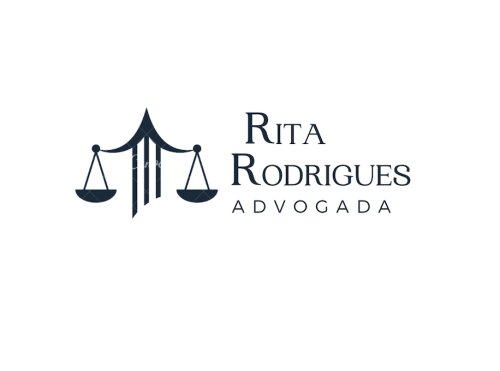Best Appeal Lawyers in Porto
Share your needs with us, get contacted by law firms.
Free. Takes 2 min.
List of the best lawyers in Porto, Portugal
About Appeal Law in Porto, Portugal
Appeal law in Porto falls under the broader scope of the Portuguese judicial system. An appeal is a legal process where a party who is unsatisfied with a court decision requests a higher court to review and potentially change the lower court's verdict. Appeals can arise from criminal, civil, administrative, family, or labor cases. Porto, as one of Portugal's major cities, is home to several courts that handle appeals, including the Tribunal da Relação do Porto (Porto Court of Appeal), which has jurisdiction over appeals from lower courts in the region. The appeal process is governed by specific procedural rules found in the Portuguese Civil Procedure Code and other relevant statutes.
Why You May Need a Lawyer
Engaging a lawyer is critical when dealing with appeals in Porto for several reasons. Legal representation can help you:
- Understand complex appeal procedures and deadlines that are strictly enforced.
- Evaluate whether an appeal is feasible and on what grounds it can be lodged.
- Prepare the required documents and legal arguments to support your case.
- Navigate the formalities and technical requirements of higher courts.
- Represent your interests and negotiate with opposing parties if necessary.
Common scenarios where legal help may be required include:
- Disputing a civil court decision on property, contract, or family matters.
- Challenging criminal convictions or sentences.
- Appealing rulings relating to labor disputes or administrative decisions.
- Correcting errors in court procedures or misinterpretations of the law.
Local Laws Overview
The appeal process in Porto follows national Portuguese law. Key aspects to consider include:
- Appeals must be based on specific legal grounds, such as procedural errors, misapplication of law, or misinterpretation of facts.
- Strict deadlines apply: appeals generally must be filed within 15 to 30 days depending on the type of case and court decision.
- The Tribunal da Relação do Porto is the primary appellate court for cases arising in Porto.
- Not all decisions are appealable. Some minor or interim decisions may not qualify for appeal.
- The appeal process involves written submissions, and in some cases, oral hearings.
- Higher courts typically review the record for legal errors rather than rehearing the case from the beginning.
- Further appeals might be possible to Portugal's Supreme Court or Constitutional Court under special circumstances.
Frequently Asked Questions
What is an appeal in the Portuguese legal system?
An appeal is a legal request for a higher court to review and potentially overturn or modify a decision made by a lower court.
How long do I have to file an appeal in Porto?
The deadline varies based on the case type, but is usually between 15 to 30 days from the date the court decision was notified to you.
Can I appeal any court decision?
No, only final decisions or decisions with legal grounds for appeal can be contested. Some types of decisions, especially preliminary or minor orders, may not be appealable.
Do I need a lawyer to file an appeal?
While not legally mandatory for all appeals, it is highly recommended to have a lawyer due to the complexity of the process and specific procedural requirements.
What are the main reasons to appeal a decision in Porto?
Common grounds include errors in applying the law, procedural mistakes during the trial, or misinterpretation of facts by the lower court.
What is the Tribunal da Relação do Porto?
It is the main appellate court in Porto that hears appeals from lower courts in the Porto region.
How is the appeal process conducted?
The process is mostly written, involving the submission of an application and supporting documents. In some instances, oral arguments may be scheduled.
What happens if my appeal is successful?
If the appeal court agrees with your arguments, it may overturn or amend the original decision, or order a retrial in the lower court.
Can I appeal further if I lose at the Court of Appeal?
In certain cases, further appeal to the Supreme Court or Constitutional Court is possible, but only on limited legal grounds.
How much does an appeal cost?
Costs vary depending on the case, court fees, and legal representation. It is advisable to consult a lawyer for an estimate based on your specific situation.
Additional Resources
For assistance with appeals in Porto, the following resources can be helpful:
- Tribunal da Relação do Porto - The local appellate court handling the majority of appeals in the Porto area.
- Ordem dos Advogados (Portuguese Bar Association) - Provides directories of certified lawyers, including specialists in appeal law.
- Instituto dos Registos e do Notariado - For finding notaries and official documentation support.
- Julgados de Paz do Porto - Handles minor disputes and can provide advice on whether an appeal is suitable.
- Portuguese Judiciary Portal (Citius) - Offers information on judicial processes and case progression.
- Local Legal Aid Offices - Help with access to justice and legal representation for those who qualify for support.
Next Steps
If you believe you have grounds for an appeal in Porto, consider the following actions:
- Consult with an experienced appeal lawyer as soon as possible to assess your case and confirm appeal deadlines.
- Collect and organize all relevant documents and information related to your original case.
- Confirm whether the decision you wish to appeal is final and eligible for review by a higher court.
- Work with your lawyer to file the appeal within the prescribed deadline and according to local procedural requirements.
- Prepare for the possibility of a lengthy process and involve yourself in the preparation of your legal arguments.
Taking timely action and relying on expert legal help are crucial to a successful appeal. Early advice can make a significant difference in the outcome of your case.
Lawzana helps you find the best lawyers and law firms in Porto through a curated and pre-screened list of qualified legal professionals. Our platform offers rankings and detailed profiles of attorneys and law firms, allowing you to compare based on practice areas, including Appeal, experience, and client feedback.
Each profile includes a description of the firm's areas of practice, client reviews, team members and partners, year of establishment, spoken languages, office locations, contact information, social media presence, and any published articles or resources. Most firms on our platform speak English and are experienced in both local and international legal matters.
Get a quote from top-rated law firms in Porto, Portugal — quickly, securely, and without unnecessary hassle.
Disclaimer:
The information provided on this page is for general informational purposes only and does not constitute legal advice. While we strive to ensure the accuracy and relevance of the content, legal information may change over time, and interpretations of the law can vary. You should always consult with a qualified legal professional for advice specific to your situation.
We disclaim all liability for actions taken or not taken based on the content of this page. If you believe any information is incorrect or outdated, please contact us, and we will review and update it where appropriate.














